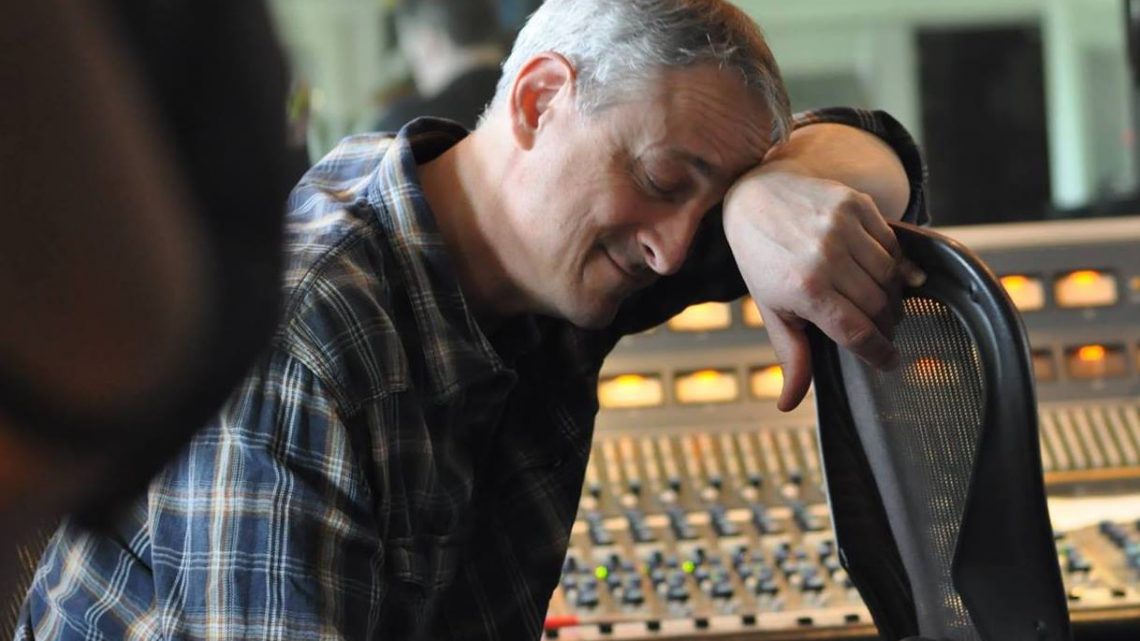Lost in the fast pace and confused shuffle of the digital age of music creation is the role of the once in-demand and necessary music producer. Norman Granz, Alfred Lion, Bob Thiele, Teo Macero, Rudy Van Gelder, Orrin Keepnews, Ahmet Ertegun, Quincy Jones, Creed Taylor, Manfred Eicher are some of the names that helped define many innovative and vital creative voices that shaped jazz recorded music over the past 70 years. The role of the producer varies within each personality and artist or band which adds a layer of intrigue surrounding these behind-the-scenes titans.
One of the most notable producers since the 1990’s, Matt Pierson has worked with of a number of contemporary jazz greats ranging from Kenny Garrett to Brad Mehldau to Pat Metheny to Kirk Whalum. We recently caught up with Matt to ask him a few questions about the art of music producing and what he has gained from his experiences over the years.
What is the greatest thrill being a music producer?
The moment when an artist is able to transcend the intellectual and technical aspects of the process and present their vision in a purely emotionally connective way.
Who are three of your greatest creative influences as far as music producing is concerned?
Steely Dan’s Aja – It sounds like the most incredible live performance imaginable, with impeccable casting of players, and creating a setting where the listener’s ear is drawn into Donald’s stories.
Stevie Wonder’s five ’72-’76 recordings (Music of My Mind, Talking Book, Innervisions, Fulfillingness’ First Finale, and Songs in the Key of Life), in my opinion the greatest period of artistic achievement by any artist in the history of popular music. Each of the 59 songs is a perfect example of using the recording environment to tell a singular story, with a willingness to break rules and revolutionize the form in the service of the artist’s singular vision.
I find myself influenced as much (or more) by film than my recordings – Kazan, Wilder, Hitchcock, Kurosawa, Fellini, Chaplin, Truffaut, etc. The four stages of recording and filmmaking are the same: script, casting, documentation, and editing. If I had to pick one, it would be Orson Welles’ Citizen Kane – perfect storytelling and casting, but most important, his ability to ignore perceived limitations of an art form to realize his artistic vision.
What is the primary role of a music producer and why is it important?
To be of service to the artist, offering your experience and emotional support in their pursuit of realizing their vision.
With so many artist produced recordings nowadays, do you feel the music suffers as a result of not having a specific (non-performing) producer?
Of course! Only the artist hears their music the way they hear it – without another set of experienced ears, it’s nearly impossible to translate their vision into something that can connect with strangers. Also, when you allow others to do what they do best, you can focus on your primary goal – finding a vulnerable, honest way to tell your own story.
Over your 25+ year music career, you have produced recordings with some of the greatest musicians in the world, what are some of your take aways working with these artists?
Brad Mehldau – The ultimate balance of harmonic sophistication, arrangement/comping, feel, and most important distinctive, extraordinarily melodic storytelling.
Joshua Redman – The importance of leading with your OWN sound in service of an emotional connection to the listener without compromise.
Bob James – Keep it simple and sneak some shit by ‘em, and a fantastic sense of arrangement in every setting.
Milton Nascimento – An absolute sweetheart of a guy with the closest thing to the voice of the heavens, even to an agnostic like me.
Pat Metheny – Without question the greatest musical visionary of our time, with the ability to utilize multiple instruments to pursue seemingly infinite directions while retaining a singular sound and melodic personality. Also, a brilliant sense of marketing himself, creating a loyal fan base while creating opportunities to realize an awesomely diverse vision.
Becca Stevens – One of the most original voices and songwriters working today, plus a fantastic interpreter.
Lea Delaria – Lea’s commitment to being true to herself and willingness to take chances is extraordinary. And she swings her ass off.
Kirk Whalum – More than any artist I’ve worked with, with Kirk there is an immediate connection between his heart and his sound. Listening to him as if you’re inside his soul.
Are you optimistic about where jazz is headed?
What is jazz? There are so many fantastic artists on the scene with diverse influences/open minds. Although we’ve lost much of the kind of mentorship that was essential in the development of the music, there is a fantastic sense of community and collaboration amongst musicians today. So yes, I’m very optimistic about where music is heading. The challenge is where the business is heading. How much time you got?
Related: mattpierson.net
